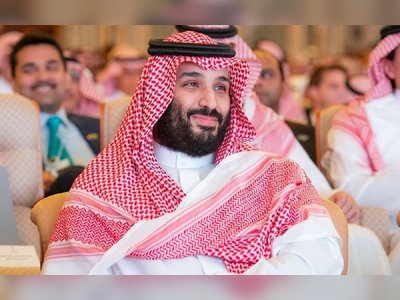
Human Intelligence in a Digital Age - an Eye Opening and Refreshing Speech by Richard Moore, Chief, Secret Intelligence Service
Richard Moore, Chief of the UK Secret Intelligence Service (MI6), makes his first public speech since taking up his role in October 2020. In a brilliant, refreshing and innovative speech, he talks about the seismic changes he sees in the world, specifically in the espionage environment.
He discusses China, Russia and Iran, three of the ‘Big Four’ priorities for the intelligence world. He also explains what the UK is doing to address the fourth priority – the amorphous, shape shifting character of international terrorism.
A Very refreshing, forward-thinking and eye-opening speech.
'We must become more open, to stay secret'. The MI6 chief says spies must work with tech firms to counter threats.
But for Britain to implement the important and refreshing proposals of this smart man, there are major obstacles: the twin British addictive diseases of excess taxation and excess bureaucracy.
The UK's adversaries, Mr Moore will say, are investing heavily in areas like artificial intelligence, quantum computing and synthetic biology.
"They know that mastering these technologies will give them leverage," he will tell an audience at the International Institute for Strategic Studies (IISS) in London on Tuesday.
"An intelligence service needs to be at the vanguard of what is technologically possible," he will say, according to excerpts of the speech.
This is nothing new, he will say, pointing to how British spies in the early days developed "secret writing" technologies - invisible ink - to smuggle secrets past opponents before moving on to use "secure speech" technologies during World War II.
"What is new is that we are now pursuing partnerships with the tech community to help develop world-class technologies to solve our biggest mission problems, and those of MI5 and GCHQ," Mr Moore will say, referring to MI6's two sister agencies.
"We cannot hope to replicate the global tech industry, so we must tap into it…. Unlike Q in the Bond movies, we cannot do it all in-house."
This will be a "sea-change" for an agency that traditionally relied primarily on its own internal capabilities to develop the equipment needed to stay secret and effective.
But in today's world - where technology companies are among the leading developers of kit that has the ability to transform daily life - that has to change.
Mr Moore will say: "We must become more open, to stay secret."
Turning to the challenge posed by emerging technologies, he will say the digital environment is being exploited by hostile states, criminals and terrorists in ways to harm the UK, and that the threat "is growing exponentially".
He will note that according to some assessments "we may experience more technological progress in the next ten years than in the last century, with a disruptive impact equal to the industrial revolution".
"As a society, we have yet to internalise this stark fact and its potential impact on global geopolitics. But it is a white-hot focus for MI6."
Mr Moore took over as Chief - or "C" - of MI6 in October 2020.
Why there is no British - or European - Facebook, Google or Apple?
The development bug is in the old-fashioned colonial mindset, and that’s why British tech companies are way behind the market, and have never produced a mega-success.
Technology companies in the UK are limited and amateurish compared to those in the United States. Britain, like other Western European countries, runs on the principle of maximizing taxation on the working classes, first to finance the pleasures of the lazy elite, and second to finance the parasitic bureaucracy that serves the interests of the elite. These under-performing "First World" (hah, hah) countries then compound their folly by implementing a ridiculous degree of over-regulation that stifles most innovation at birth and keeps those start-ups that do make it past infancy in a state of permanent oxygen deficiency.
The British tradition is to protect the status quo, while the American tech giants never stop disrupting it.
The British remain a society with a colonial-mindset, where their capitalism is premised on the false belief that one man's profit must be another man's loss.
American capitalism, on the other hand, is based on a win-win formula, whereby the rich get filthily richer by significantly uplifting the earnings of the working class and the middle class.
No one would claim that American Capitalism is perfect. And no one should decry the value of the British systems of Education, Healthcare and Social Benefits. But no one could claim that in Britain culture and innovation go hand-in-hand. They simply don’t fit together. Not anymore.
The UK today is a destructively divided society, with the fault-lines driven deep by the twin evils of over-taxation and over-regulation. (And by the way, those two societal viruses are particularly British, not at all Chinese.)
The time is over for deflecting blame by deploying the traditional British technique of pointing fingers at others instead of admitting the nation's own faults. China is taking over the world not because they're actively targeting Britain, but because they're pushing themselves forward while Britain is busy blaming others while taking no responsibility for its own future.
In truth, Britain is not an attractive place for start-ups, innovators, talented immigrants, or even for the new and the next generation. Conversely - or stupidly, you might say - it attracts too many poor and unqualified immigrants that have no better choice in life (often because Britain and its allies destroyed their homelands). Importing these poor people is the first step in manufacturing state poverty, which has ended up dividing and poisoning the UK from within. This dreadful outcome is far from the British government's deluded dream of "startups, technology and innovation". There is a yawning chasm between the awesome dream and the awful reality, and the British people are culpably complacent in not recognising it. This failure of the British public to see the blinding obvious cannot be excused or explained by their successive governments putting an impossibly rich gloss on the techno-hype, or by their much-lauded (now derided) mass media talking up "tech success stories" which would not get a column inch in Chengdu. Even when you are being mis-led and mis-informed, or especially when that's happening, it's necessary to fully understand where you really stand.
Likewise, while Mr. Richard Moore brilliantly defines the problem, he seems not to recognise that the major enemy confronting his wonderful ideas lies within. And that the enemy within is much more dangerous than China, Russia or any other external factor.
The only way to fight terror effectively is simply to stop creating enemies.
The only way to enrich society - while keeping the fat, lazy elite doing nothing productive - is to give innovators in Britain their head and give their start-ups every encouragement to take off. This means without interference from the obtuse regulators protecting the status quo, and without the malignant tax system killing off seed money before any good ideas can fly.
The first task of the CIA is to protect the US Dollar; the second task is to protect the US economy.
What is MI6 doing to protect the Pound, and to enrich the mass population of the UK?
Britain's leaders must stop selling the past. The British people must stop believing in it. (It has as much shame as pride in it anyway.) Britain must start building the future. Its people must step up to the brave new world. With confidence, and courage and alacrity. From scratch. Without the lawyers, without the accountants: they're the parasites that suck the blood from the host. Without the taxes: they suck the oxygen from the lungs. Without the takers: they sap the drive from the doers.
To be part of the new world or not to be. That is the question.






